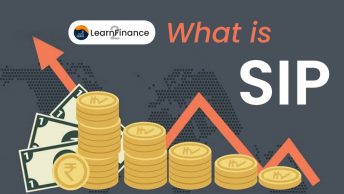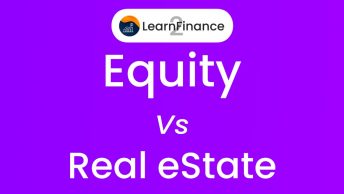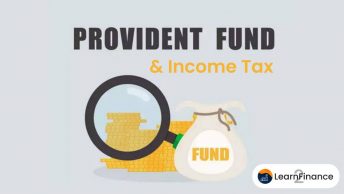Everyone is talking about Investments or investing these days. Everyone has a friend who can make you and your bank account rich if you will just give them your money. The problem is that most of these people are not interested in your financial well-being. So how do you find true financial freedom? It all starts with having a well-planned investment strategy. Here are some tips to help you get started.
Unfortunately, a high-return, low-risk investment product does not exist. Maybe in a perfect world, but not right now. In truth, risk and return are inextricably linked; the higher the profits, the higher the risk, and vice versa.
Before investing in any investment, you must match your risk profile with the risks connected with the product. Some investments have high risk yet have the potential to yield larger inflation-adjusted returns than other asset classes over time, whereas others are low risk and hence have lower returns.
Here are some investment options that Indians consider while investing for financial goals.
Mutual Funds :
If you have a long investment horizon, you may use mutual funds to leverage the power of compounding. Furthermore, no prior market expertise is required. Mutual funds are professionally managed by fund managers with extensive experience managing investment portfolios. Because you are a youthful investor, you can invest in equity funds, which are known to provide great long-term returns.
Hybrid and debt funds are also viable options, although investing in them will restrict your profits. If you want to save taxes, you can invest in an equity-linked savings plan (ELSS). These funds are exempt from taxation under Section 80C of the Income Tax Act of 1961, allowing you to save up to Rs 46,800 every year. No other tax-saving investment provides the combined advantage of tax deductions and wealth creation like ELSS mutual funds.
Stock markets:
Investing in the stock market provides you with the best opportunity of earning the biggest returns of any investment choice. You can invest with a long-term investment strategy since you have age on your side. This will help you deal with market volatility and will benefit you in the long run.
To invest in the stock market, however, you must be familiar with the market. If not, you should avoid investing in the stock market. Investing in stock markets without prior market understanding is equivalent to gambling. If you had invested Rs 55,000 in Eicher Motors (the producer of Enfield motorcycles) shares in 2001 (Rs 17.50 per share), your investment would today be worth Rs 4.75 crore! Such is the clout of the stock market.
National Pension System (NPS):
The NPS is a national pension system. The Pension Fund Regulatory and Development Authority manages the National Pension System, a long-term retirement-focused investment product (PFRDA). The yearly payment required for an NPS Tier-1 account to stay active has been lowered from Rs 6,000 to Rs 1,000. It consists of a combination of equities, fixed deposits, corporate bonds, liquid money, and government funds, among other things. You may select how much to invest based on your risk tolerance.
PPF is an abbreviation for Public Provident Fund (PPF) :
Because PPF has a 15-year term, the benefit of compounding tax-free interest is significant, especially in the later years. Furthermore, because the interest and principal invested are guaranteed by a governmental guarantee, it is a safe investment. Remember that the government reviews the interest rate on PPFs every quarter. More information on the PPF may be found here.
Fixed deposit at a bank (FD) :
In India, a bank fixed deposit is seen as a safer (than stock or mutual funds) investment option. With effect from February 4, 2020, each depositor in a bank is protected up to a maximum of Rs 5 lakh for combined principle and interest amount under the deposit insurance and credit guarantee corporation (DICGC) guidelines.
Previously, the coverage was limited to a maximum of Rs 1 lakh for combined principle and interest. One can choose between monthly, quarterly, half-annual, yearly, or cumulative interest options, depending on their needs. The interest rate earned is added to one’s income and taxed according to one’s income bracket. More information about bank fixed deposits may be found here.
Senior Citizen Savings Plan (SCSS) :

You would be thinking about how an SCSS plan could be a beginner investment option, You could ask your grandparents and invest on their behalf.
The Senior Citizens’ Saving Scheme, which is likely to be the first option of most retirees, is a must-have in their investment portfolios. This programme is exclusively available to senior persons or early retirees, as the name implies. Anyone over the age of 60 can apply for SCSS through a post office or a bank.
SCSS has a five-year term that can be extended by three years if the scheme reaches maturity. The maximum investment limit is Rs 15 lakh, and several accounts may be opened. SCSS interest is due quarterly and is fully taxable. Remember that the scheme’s interest rate is subject to quarterly review and modification.
However, if an investment is placed in the programme, the interest rate will stay constant until the scheme matures. Section 80TTB allows senior citizens to claim a deduction of up to Rs 50,000 in a fiscal year on the interest received through SCSS. More information on the Senior Citizens’ Saving Scheme may be found here.
Pradhan Mantri Vaya Vandana Yojana (PMVVY):
The PMVVY is a scheme for elderly persons aged 60 and above that guarantees a 7.4% annual return. The programme provides pension income that can be paid monthly, quarterly, half-yearly, or annually, depending on the option selected. The lowest pension payment is Rs 1,000 per month and the highest pension amount is Rs 9,250 per month. The plan allows for a maximum investment of Rs 15 lakh. The plan will last for ten years. The programme is valid through March 31, 2023.
The investment amount is returned to the elderly citizen when it reaches maturity. The money will be paid to the nominee in the case of the death of a senior person.
Real Estate:
The property you reside in is for personal use and should never be seen as an investment. If you do not intend to live there, the second home you purchase might serve as an investment.
The location of the property is the single most essential element in determining the value of your home as well as the rental income it may generate. Real estate investments provide profits in two ways: capital appreciation and rental income. Real estate, on the other hand, is extremely illiquid in comparison to other asset classes. The other major risk is obtaining the requisite regulatory permissions, which has been substantially resolved with the arrival of the real estate regulator.
Find out more about real estate.
Gold:
Possessing gold in the form of jewellery has its own set of problems, including safety and high cost. Then there are the making charges,’ which generally range from 6% to 14% of the cost of gold (and may go as high as 25 per cent in case of special designs). There is still an alternative for individuals who wish to purchase gold coins.
Nowadays, several banks offer gold coins. Paper gold is a different method to own gold. Investing in paper gold is less expensive and maybe accomplished through gold ETFs. This type of investing (buying and selling) takes place on a stock market (NSE or BSE) using gold as the underlying asset. Another way to hold paper gold is to invest in Sovereign Gold Bonds.
Taxable Bonds issued by the RBI :
Previously, the RBI issued 7.75 per cent Savings (Taxable) Bonds as an investment alternative. However, the central bank has ceased issuing these bonds as of May 29, 2020. With effect from January 10, 2018, these bonds replaced the previous 8 per cent Savings (Taxable) Bonds 2003 with 7.75 per cent Savings (Taxable) Bonds. These bonds had a 7-year term.
With effect from July 1, 2020, the Central Bank has issued the Floating Rate Savings Bond, 2020. (Taxable). The most significant distinction between prior 7.75 per cent savings bonds and the newly issued variable rate bond is that the interest rate on the newly announced savings bond is subject to a six-month reset. The interest rate on the 7.75 per cent bonds was set for the term of the investment. The bonds now have an interest rate of 7.15 per cent. The next interest rate reset is scheduled for June 1, 2021. Learn more about the RBI’s floating-rate bonds.
Conclusion:
Some of the investments listed above are fixed-income, while others are financial market-linked. Fixed-income and market-linked investments both play a role in the process of wealth creation. Market-linked investments have the potential for high returns, but they also have high risks. Fixed income investments aid in the preservation of accumulated wealth in order to achieve the desired outcome. Long-term goals require making the best use of both worlds. Maintain a prudent mix of investments while minimising risk.



![10 [Must Read] Books on Personal Finance for Indian Investors 4 10 [Must Read] Books on Personal Finance for Indian Investors](https://learn2finance.com/wp-content/uploads/2021/09/10-Must-Read-Books-on-Personal-Finance-for-Indian-Investors-344x194.jpg)




